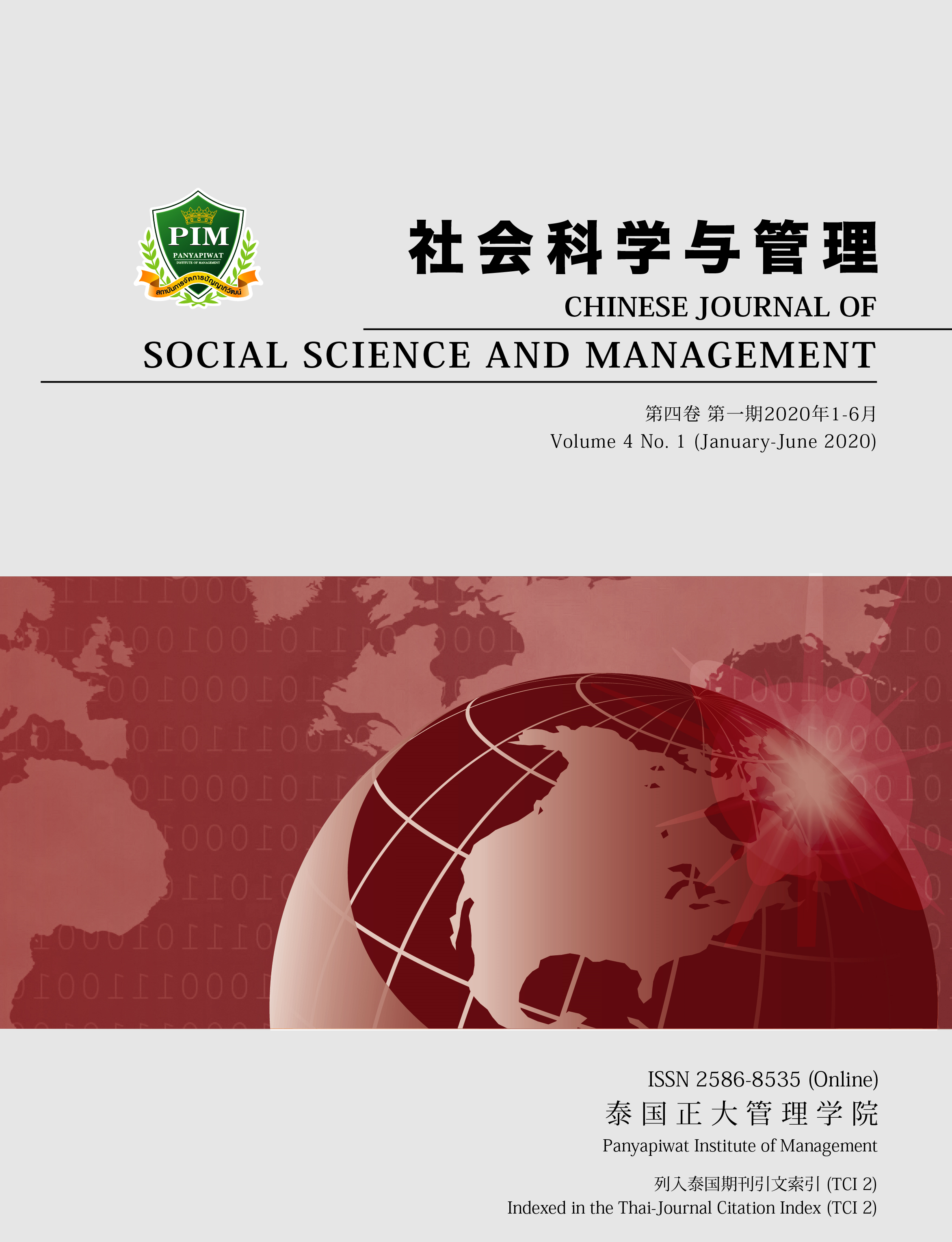THE INFLUENCE OF ENTREPRENEURSHIP ON ENTERPRISE PERFORMANCE THE MEDIATING ROLE OF STAFF INNOVATION BEHAVIORS
Main Article Content
Abstract
Abstract
In order to clarify the relationship between entrepreneurship, staff innovation behavior and enterprise performance, theoretical hypotheses were proposed based on the combination and summary of related studies in which entrepreneurship has a positive effect on the enterprise performance, and staff innovation behavior plays a mediating role in the process of the influence of entrepreneurship on enterprise performance. The questionnaire was designed using a maturity scale, and a total of 507 valid questionnaires were collected. Statistical analysis software SPSSS21.0 was used to conduct various types of analysis on the valid data collected, including descriptive statistics, reliability analysis, exploratory factor analysis (EFA), confirmatory factor analysis (CFA), correlation analysis, and regression analysis. The proposed theoretical model and hypotheses were verified concurrently. The data analysis results showed that all dimensions of the entrepreneurship have remarkably positive effects on the enterprise performance and that staff innovation behavior, in part, plays a mediating role between entrepreneurship and enterprise performance.
Article Details
Chinese Journal of Social Science and Management Editorial Division
The Office of Research and Development, Panyapiwat Institute of Management
85/1 Moo 2, Chaengwattana Rd., Bang Talat, Pakkred, Nonthaburi 11120, Thailand
Tel. 02 855 01048 E-mail: cjssm@pim.ac.th
References
Baron, R. M. & Kenny, D. A. (1986). The Moderator-Mediator Variable Distinction in Social Psychological Research: Conceptual, Strategic, and Statistical Considerations. Journal of Personality and Social Psychology, 51(6), 1173-1182.
Chen, G. Q. (2009). Organizational learning and learning organization: Concept, Competency model, Measurement, and Impact on performance. Management review, 21(1), 107-116. [in Chinese]
Covin J. G. & Slevin, T. J. (1991). A conceptual model of entrepreneurship as firm behavior. Entrepreneurship Theory and Practice, 16(1), 7-24.
Drucker, P. F. (2007). Innovation and entrepreneurship (W. Y. Cai, Trans). Haikou: Hainan press. (Original work published 1985). [in Chinese]
Freeman, C. (1987). Technology Policy and Performance: Lessons from Japan, London and New York. London: Pinter.
Kaplan, R. S. & Norton, D. P. (1992). Using the Balanced Scorecard as A Strategic Management System? Harvard Business Review, 74(1), 75-85.
Liu, Z. Q., Deng, C. J., Liao, J. Q. & Long, L. R. (2005). Organizational Support, Status Cognition and Employee Innovation: A Perspective of Diversity Employment. Journal of Management Science, 18(10), 80-94. [in Chinese]
Marshal, A. (2005). Principles of economics (Y. J. Lian, Trans). Beijing: Commercial press. (Original work published 1990). [in Chinese]
Schumpeter, J. A. (2007). The theory of economic development (W. He et al., Trans). Beijing: Commercial press. (Original work published 1990). [in Chinese]
Scott, S. G. & Bruce, R. A. (1994). Determinants of Innovative Behavior: A Path Model of Individual in the Workplace. The Academy of Management Journal, 37(3), 580-607.
Tierney, P. & Farmer, S. M. (2002). Creative self-efficacy: Its potential antecedents and relationship to creative performance. Academy of Management Journal, 45(6), 1137-1148.
Zahra, S. A. (1995). Corporate Entrepreneurship and financial Performance: The Case of Management Leveraged Buyouts. Journal of Business Venturing, 10(3), 225-247.


